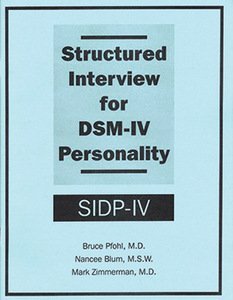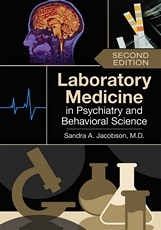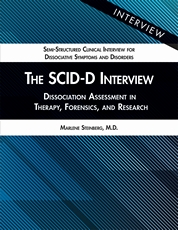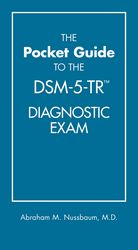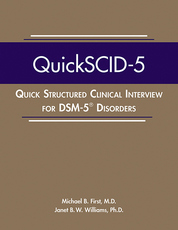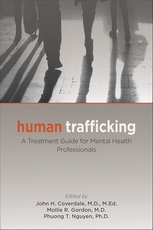Structured Interview for DSM-IV® Personality (SIDP-IV)
View Pricing
Description
Updated for DSM-IV, the Structured Interview for DSM-IV Personality (SIDP-IV) is a semi-structured interview that uses nonpejorative questions to examine behavior and personality traits from the patient's perspective. The SIDP-IV is organized by topic sections rather than disorder to allow for a more natural conversational flow, a method that gleans useful information from related interview questions and produces a more accurate diagnosis. Designed as a follow-up to a general psychiatric interview and chart review that assesses episodic psychiatric disorders, the SIDP-IV helps the interviewer to more easily distinguish lifelong behavior from temporary states that result from an episodic psychiatric disorder. During the session, the interviewer can also refer to the specific DSM-IV criterion associated with that question set. In the event that the clinician decides to interview a third-party informant such as family members or close friends, a consent form is provided at the end of the interview.
With this useful, concise interview in hand, clinicians can move quickly from diagnosis to treatment and begin to improve their patient's quality of life. This is a package of 5.
Contents
- Instructions. Introduction to SIDP-IV interview. Interests and activities. Work style. Close relationships. Social relationships. Emotions. Observational criteria. Self-perception. Perception of others. Stress and anger. Social conformity. SIDP-IV scoresheet.
About the Authors
Bruce Pfohl, M.D., is Professor of Psychiatry in the Department of Psychiatry at the University of Iowa, Iowa City, Iowa.
Nancee Blum, M.S.W., is a Social Work Specialist in the Department of Psychiatry at the University of Iowa, Iowa City, Iowa.
Mark Zimmerman, M.D., is Associate Professor of Psychiatry in the Department of Psychiatry at Brown University, Providence, Rhode Island.
Related Products
Carousel Control - items will scroll by tabbing through them, otherwise arrows can be used to scroll one item at a time
